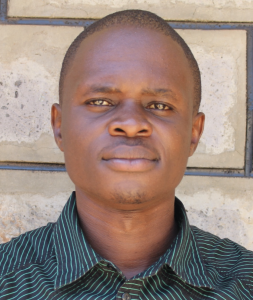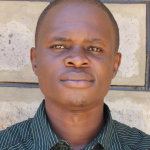Kapkeruge Primary School is located on the outskirts of Serem town in Kapkeruge village. The school sits on a four-acre piece of land with permanent buildings connected to electricity, thanks to the Rural Electrification Program implemented in 2002. The road leading to the school is accessible due to good maintenance. Kapkeruge Primary school was established in 1992 as a community school with just two classrooms, sponsored by the Pentecostal Assembly Church of God. The institution has slowly grown, today serving 496 students and 12 teachers and staff.
The school's biggest challenges come from its total lack of water on campus. Each day, students have to carry water from home for use in school. They do this in the morning before their first classes and again in the afternoon. This cumbersome daily requirement drives absenteeism cases as students would sometimes rather miss class than face punishment for not bringing enough water. Each walk to and from school drains students of their energy and wastes a lot of learning time. When students finally return to class, they often have trouble concentrating, dragging down their academic performance.
"The lack of sufficient water in school has, on various occasions, led me to abscond from school in times when I am not able to get water to carry to school. Carrying water to school every day from home is hectic and tiresome, and this does affect my concentration and comfort in school," said student Ashley.
Students' home sources of water vary greatly. Some use a partially protected spring in the village, but the spring has a slow discharge, and it is located far away from the school compound. The spring's environment is not well kept, with many stagnant and muddy water surrounding the access area. The spring is also seasonal, meaning that for part of the year, it is consistently dry. Teachers are aware of the spring's questionable water quality, but when students fetch water from home, the school has no way of ensuring the water's quality or safety.
"Water brought to school from home is not 100% safe for consumption. Someone cannot easily tell by looking with a naked eye whether water is contaminated or not. On various occasions, I have fallen victim to drinking contaminated water, forcing me to abscond my duties in school," said Headteacher Fred Indeche.
When students contract waterborne diseases, they have to miss more class time as they stay home to recover. Water-related illnesses are also quite expensive to treat, draining students' families of their financial resources.
What We Can Do:
Rain Tank
A 75,000-liter rainwater catchment tank will help alleviate the water crisis at this school. The school will help collect the needed construction materials such as sand, bricks, rocks, and water for mixing cement. We will complement their materials by providing an expert team of artisans, tools, hardware, and the guttering system. Once finished, this tank will begin catching rainfall used by the school’s students and staff for drinking, handwashing, cooking, cleaning, and much more.
The school and we strongly believe that all of these components will work together to improve standards at this school, which will help lead to better student academic performance and unlock the potential for these students to live better, healthier lives.
Handwashing Stations
The student health club will oversee the two new handwashing stations we will provide and ensure they are kept clean and in working condition. The club leaders will fill the handwashing stations with water daily and make sure they are always supplied with a cleaning agent such as soap or ash.
VIP Latrines
Two triple-door latrine blocks will be constructed with local materials that the school will help gather. Three doors will serve the girls, and three doors will serve the boys. These new latrines will have cement floors designed to be easy to use and clean. And with a rain tank right on school property, there should be enough water to keep them clean.
Training on Health, Hygiene, COVID-19, and More
We will hold a one-day intensive training session with students, teachers, and parents. This training will cover a wide range of topics, including COVID-19 symptoms, transmission routes, prevention; personal and environmental hygiene; and the operation and maintenance of the rain tank, latrines, and handwashing stations. There will be a special emphasis on handwashing.
Our team of facilitators will use various methods to train, including participatory hygiene and sanitation transformation and asset-based community development. We will initiate a student health club, which will prepare students to lead other pupils into healthy habits at school and home. We will also lead lectures, group discussions and provide illustrative handouts to teach health topics and promote good hygiene practices within the school, including handwashing and water treatment. We will then conduct a series of follow-up training before transitioning to our regularly scheduled support visits throughout the year.

 Rainwater Catchment
Rainwater Catchment
 Rehabilitation Project
Rehabilitation Project







































